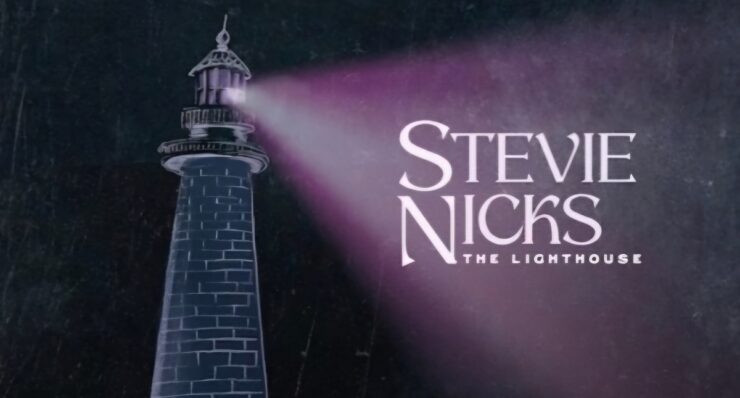 Stevie Nicks The Lighthouse banner art
Stevie Nicks The Lighthouse banner art
Stevie Nicks, a name synonymous with rock royalty, has once again captivated audiences with her latest release, “The Lighthouse.” Just days after reflections on Fleetwood Mac’s Mirage Tour ’82 surfaced, Nicks unexpectedly dropped this powerful protest anthem, proving her enduring relevance and artistic vigor. While known for her extensive solo work, even devoted fans might be taken aback by the sheer force and urgency of this new track.
In a climate often perceived as politically apathetic in music, “The Lighthouse” emerges as a beacon of defiance. This isn’t a political blog, but the spirit of protest songs – music that resonates with societal unrest – has always held a vital place in cultural discourse. In these tumultuous times, where the stakes feel exceptionally high, particularly for women, Nicks delivers a song that feels both necessary and cathartic. Echoing the divided atmosphere of the sixties, yet underscored by a contemporary sense of urgency regarding fundamental rights, “The Lighthouse” positions women at the forefront of the current social narrative, offering a potent soundtrack to their ongoing battles.
Stevie Nicks is no stranger to using her voice for causes she believes in. Her past cover of Stephen Stills’ “For What It’s Worth” served as a poignant reminder of her commitment to addressing social issues through music. However, “The Lighthouse” is an entirely original composition, brought to life with the collaborative production talents of Nicks herself, alongside Sheryl Crow and Dave Cobb. The result is more than just a song; it’s a rallying cry. It’s arguably one of the most impactful protest songs in recent memory, possessing the visceral energy to inspire action and solidarity.
The song opens with a pulsating rhythm, immediately evoking the imagery of a lighthouse beam cutting through darkness. Nicks’ vocals enter, declaring “I’ve got my scars, you’ve got yours,” her voice initially carrying a processed quality that soon gives way to her signature raspy timbre as the song progresses. Lines like “the light is going fast, until the final hours when your life is forever changed,” are underscored by a percussive guitar and drum beat that intensifies the sense of impending crisis, akin to the ticking of a doomsday clock. The sonic landscape shifts dramatically as Nicks commands, “take it back,” unleashing a surge of music that hits with undeniable force. It’s a soundscape that is both chaotic and focused, mirroring the focused rage of a storm. “The Lighthouse” is a clear statement: Stevie Nicks is not standing down. This track is viscerally impactful, capable of stirring even the most detached listener to raise a fist in solidarity. It stands out as Nicks’ most compelling original work in years.
Lyrically, “The Lighthouse” confronts the disheartening reality of re-fighting battles previously won, particularly concerning women’s rights. The song directly addresses the erosion of these rights and the power structures that perpetuate this regression. Inspired by the overturning of Roe v. Wade, a deeply divisive issue, the song transcends specific political stances to become a broader anthem for women’s rights and empowerment. Regardless of individual viewpoints on the matter, “The Lighthouse” is poised to become a staple at protest rallies for years to come, solidifying its place in the canon of protest music.
The accompanying music video further amplifies the song’s message. Juxtaposing scenes of passionate protestors advocating for women’s reproductive freedom with evocative shots of Nicks performing within a haunting lighthouse, the visuals powerfully reinforce the lyrical themes. While the video explicitly connects the song to reproductive rights, the raw energy and message of “The Lighthouse” resonate more broadly as a powerful pro-feminist statement applicable to wider struggles for equality and justice.
Regardless of personal political affiliations, “The Lighthouse” is undeniably a remarkable piece of music. It possesses an inspirational quality that transcends genre, urging listeners to engage with the critical issues of our time. If rock and roll can still serve as a catalyst for action, “The Lighthouse” is a potent call to get to the voting booth and make your voice heard.
The journey ahead may be challenging, but in the spirit of “The Lighthouse,” unity and mutual support are paramount. Remember, collective action and solidarity are our greatest strengths.

